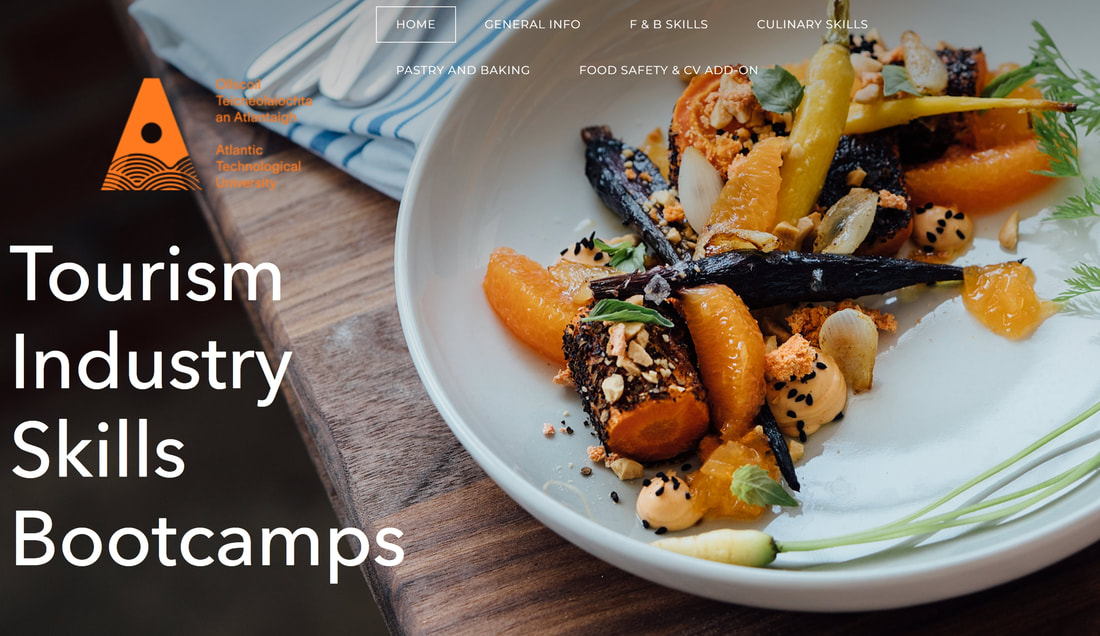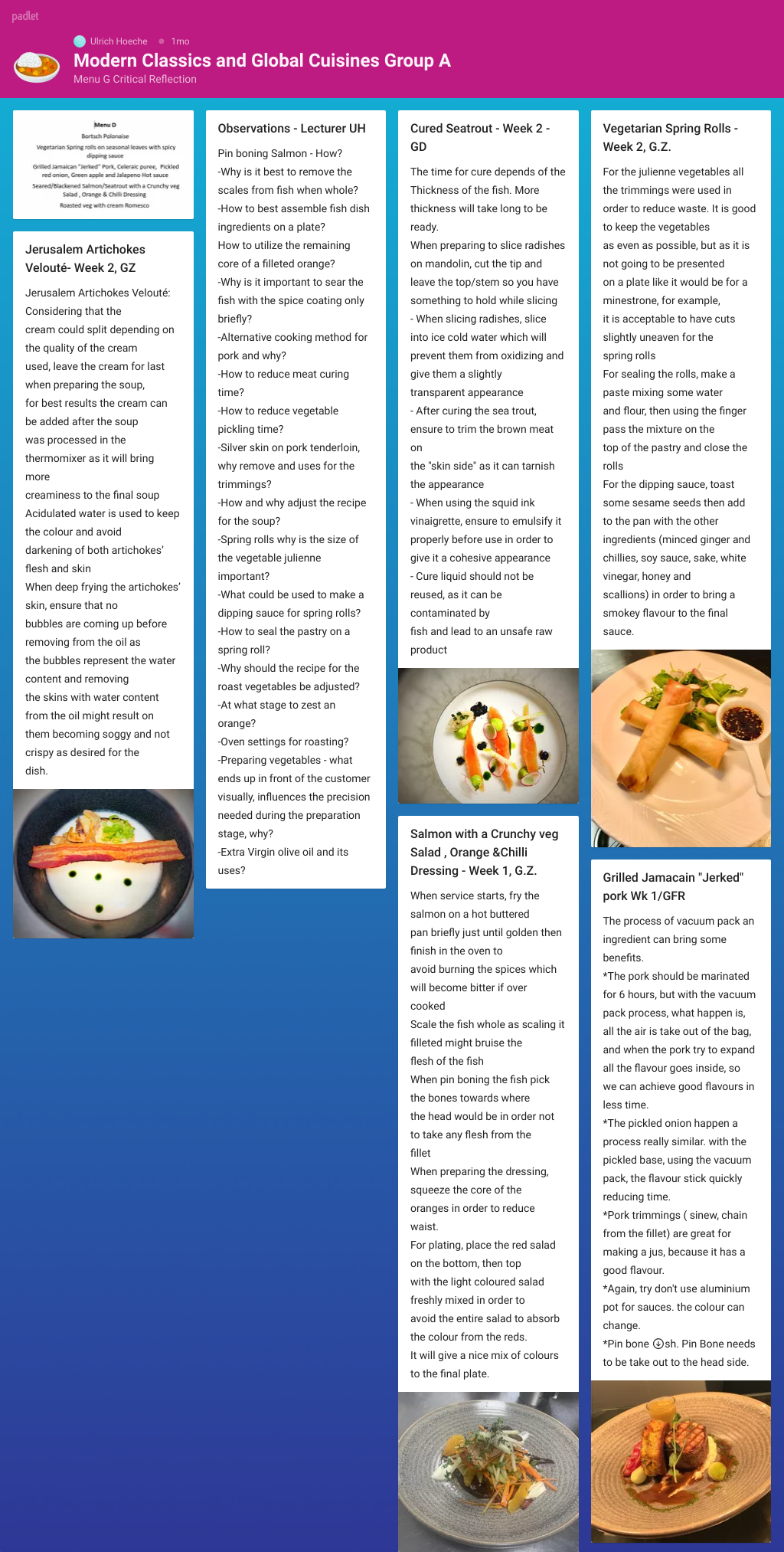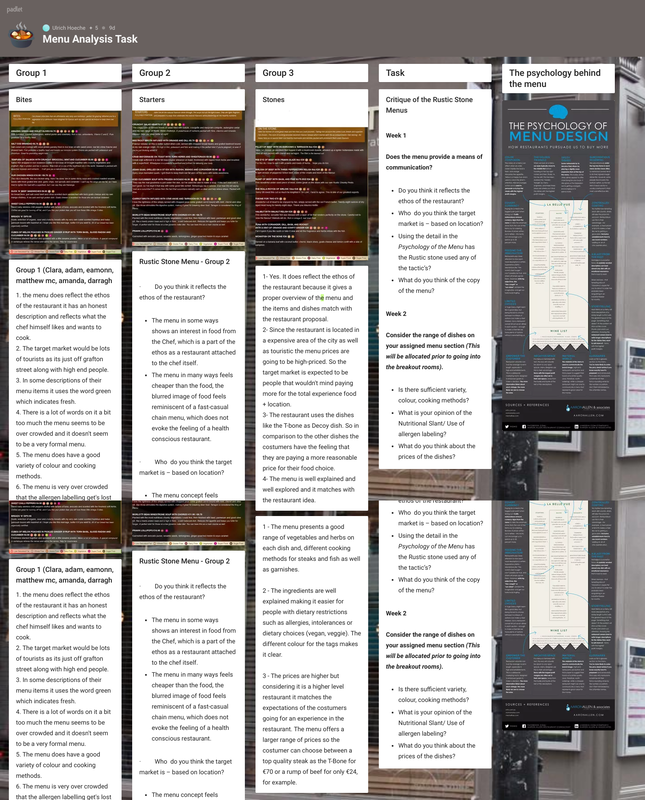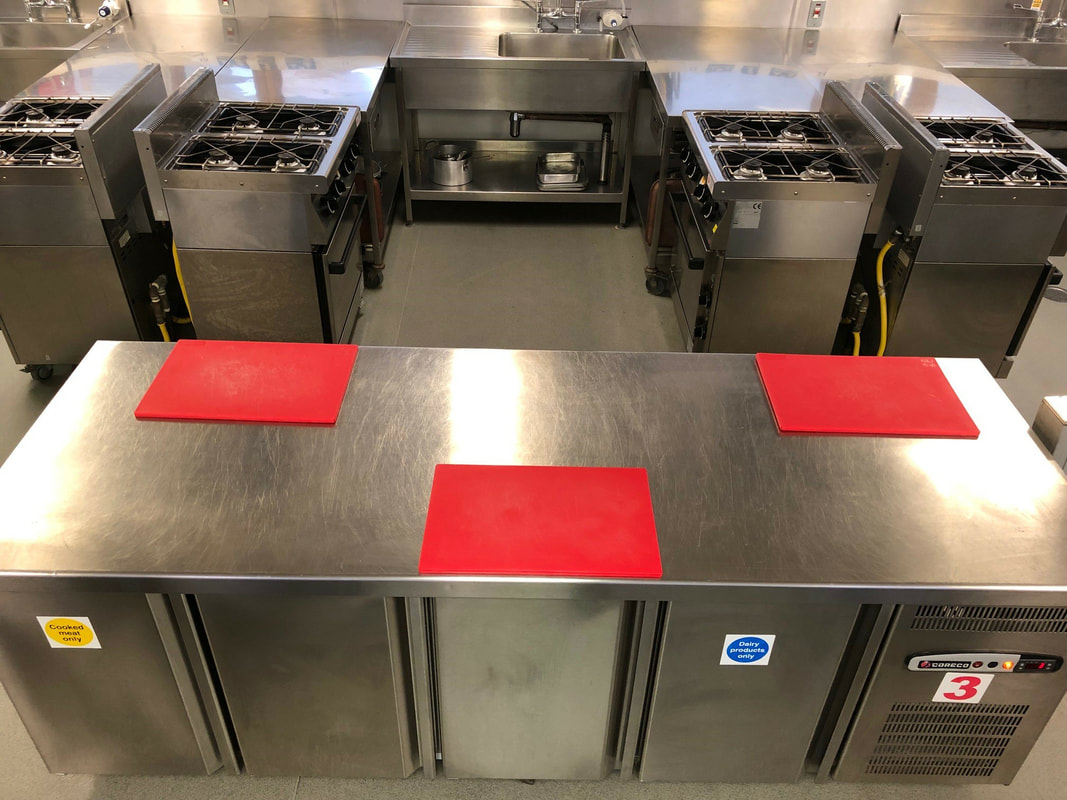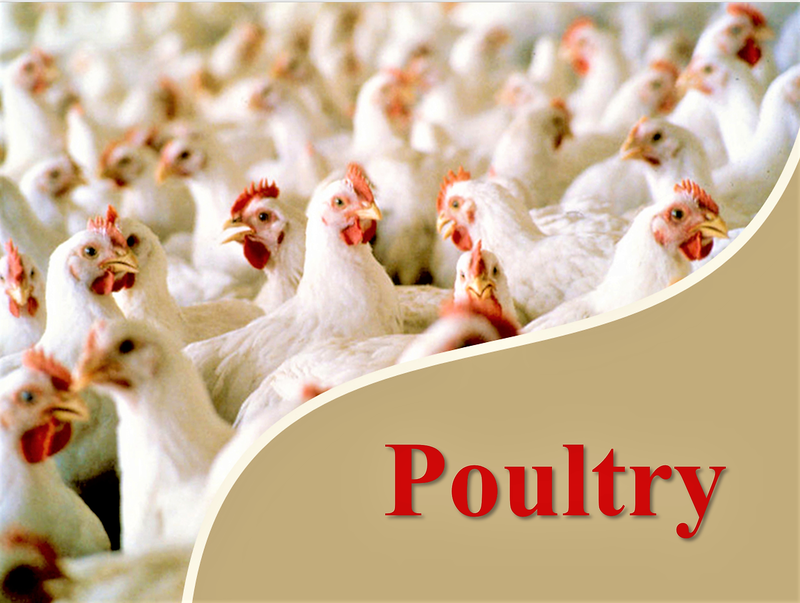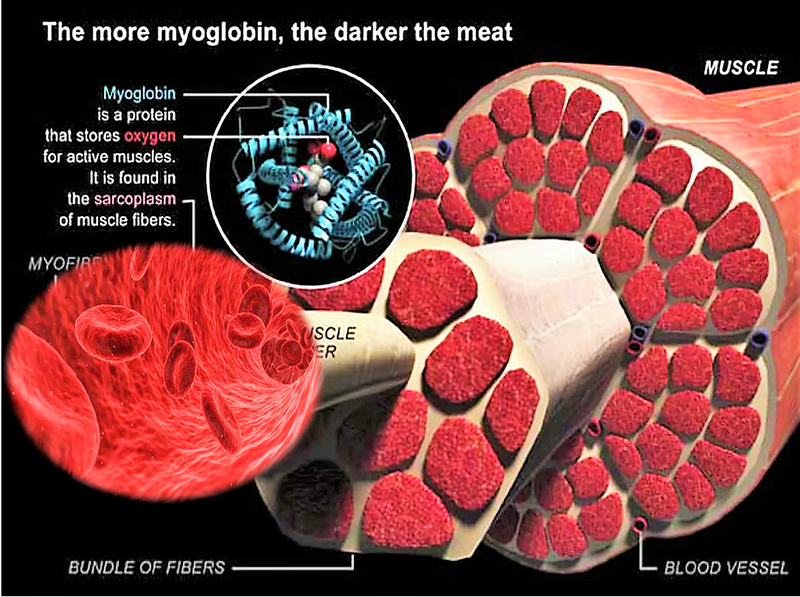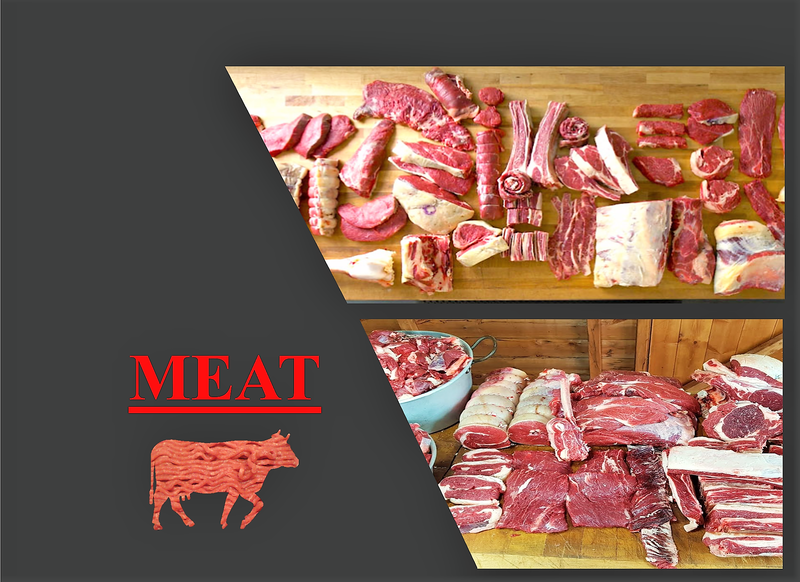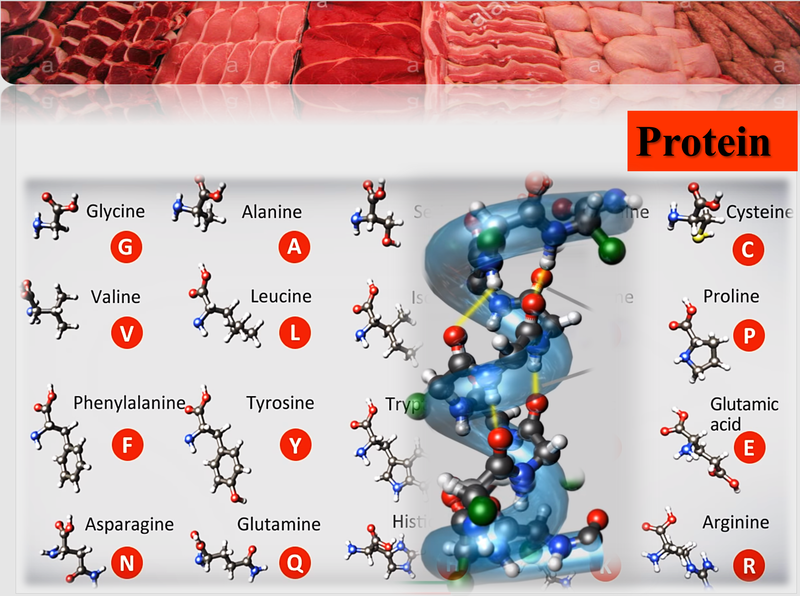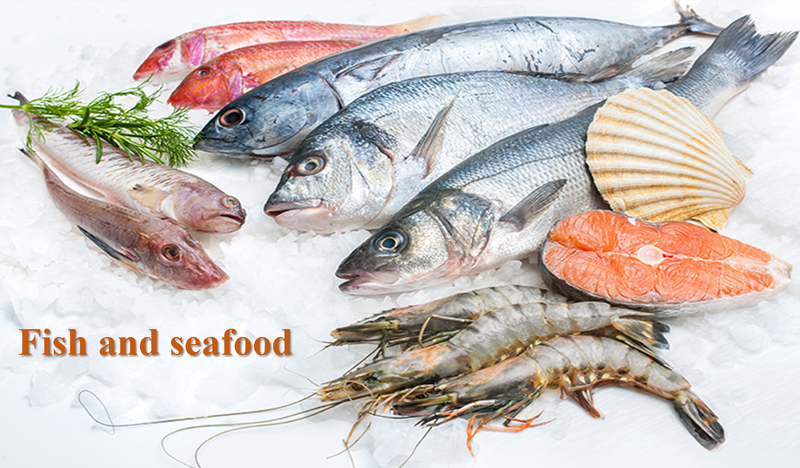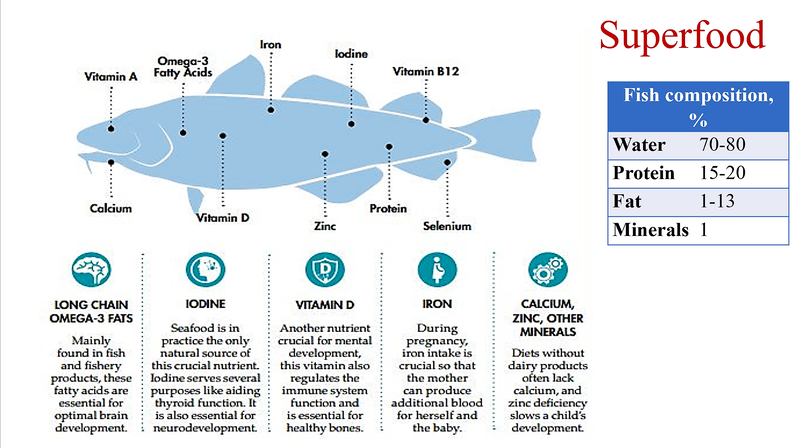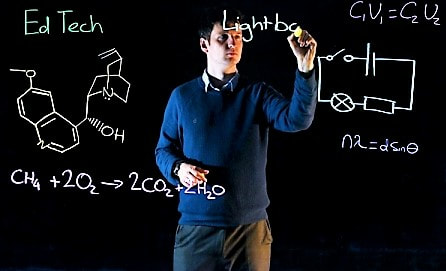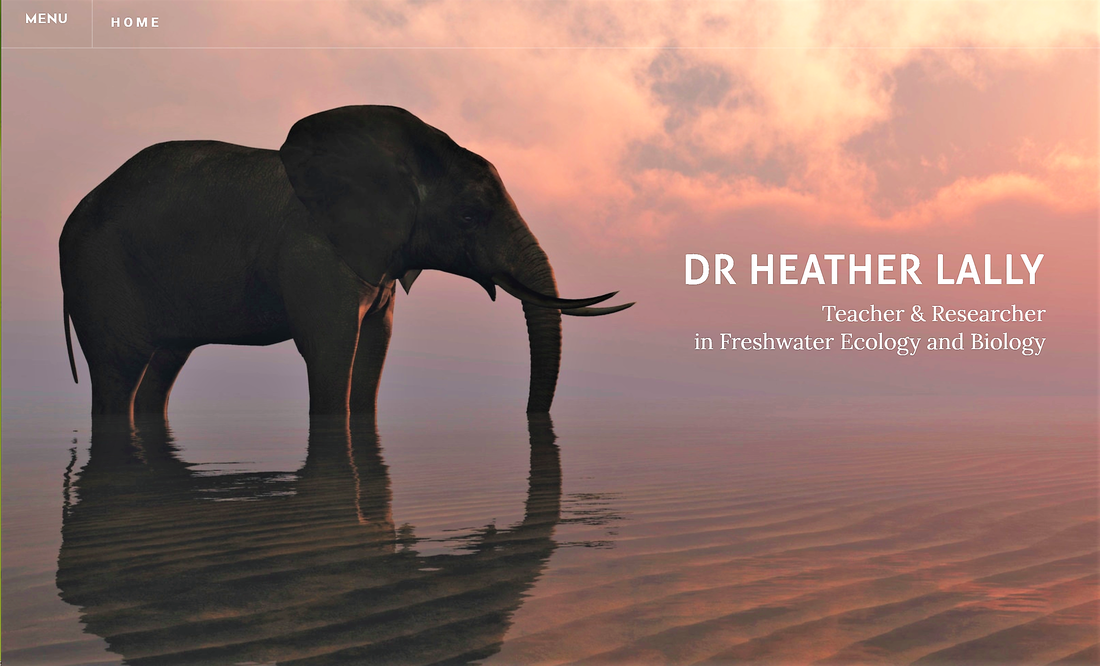|
The Galway International Hotel School, Atlantic Technological University (Former GMIT) hosted a series of bootcamps during the month of May, to help secondary school students prepare for jobs they may take up in the tourism industry
this coming summer. There was three ‘Bootcamps’ on offer running from Monday to Thursday:
The below picture is linked to the Bootcamp webpage giving a great overview of what the school students got to experience.
0 Comments
Padlet is the tool that I have used in both asynchronous and synchronous environments. Asynchronous: As a tool for culinary students to critically reflect on the practical experience in class. Students had to reflect on the dishes they had prepared and the possible problems they encountered during the preparation. Synchronous: As a tool for group work during culinary online classes. Students here had to engage with a task with groups being assigned to different Teams breakout rooms. Padlet was used to document how the group tackled the task, with one student presenting the findings to the whole class once back in the Teams main room Feedback from the students suggests that they found the two different uses of Padlet very beneficial to their learning and engagement.
We have to ask ourselves what is the real cost of cheap mass produced food and why the next generation needs to be educated on this subject of sustainability. A clear connection between the way food is produced and our health based on the consumption of that food has come to the fore, over the last number of years.Traditional diets have been replaced by diets that are full of mass-produced, highly processed and refined products, while research clearly indicates a direct link between these dietary trends and an increase in chronic disease. An around the clock oversupply of mass manufactured and far traveled exotic foods is common place in today’s supermarkets and the negative impact of continuing this non-sustainable food production and distribution system on the environment and the health of future generations needs to be addressed.
There are clear indicators that things are changing, with words like ‘Personal Carbon Food Print’ being part of everyday language and consumers becoming more aware of the environment. A large number of food scandals based on intense and mass production over the last couple of years have also affected confidence in this type of produce considerably, leaving consumers wanting to be able to connect with their food, its origin and the method of production more than ever before. Globally there are a number of initiatives that are supporting this change in attitude, for example the Slow Food movement which was established as far back as 1986 by Carlo Petrini in Italy is at the forefront of the drive to establish a clean and fair food system that takes the environment, animal welfare, biodiversity and our own health into consideration. There is also a continuing and growing movement in Ireland which supports the use of organic, natural, local and seasonal ingredients with the search for the true taste at its heart. Some of this movement is driven by a number of people within the catering sector, which are great advocates for the sourcing of sustainable and organic produce and things are definitely heading in the right direction. There is however also an urgent need to inform and educate the next generation on the importance of sustainability as early as possible, and initiatives like the ‘The Future is Food’ developed for transition year students by The Taste Council in partnership with Bord Bia are a good starting point. Nonetheless it is vital to continue the tutoring on sustainable produced food into third level education, and not only with upcoming food producers but also with future generations of chefs as it will be their buying decisions which will make a difference in the forthcoming years. Practical culinary education can be costly, therefore we have to ensure that the training we provide is effective, with maximum impact, resulting in excellent employability for our graduates. With the above in mind I assessed the delivery of practical classes in kitchen labs, presenting lecturers with great challenges trying to pay sufficient attention to each individual student. Commonly all important tasks of the day are demonstrated and than replicated, building up a repertoire of skills over the duration of the term, which is reinforced on a continual basis. The structure of culinary classes in a practical kitchen lab allows for 15 students to have their own individual work stations. This fact resulted traditionally in students working on their own individual stations simultaneously while preparing items of meat, poultry or fish, making it extremely difficult for the lecture to observe all the students at the same time. See traditional structure of learning environment below. Upon critical reflection of the situation and the learning environment, I decided that in order to deliver the best possible learning experience for the students a reevaluation of the current structure had to be carried out. I set up a central preparation area with only three students working on meat, poultry or fish items at the time, while rotating the students within the class on completion of the task. This allowed me to concentrate on three students carrying out the critical tasks off meat, poultry or fish preparation, while the other students continued with simple tasks and skills previously acquired, which I was able to assess upon completion at the end of the food preparation time. See revised structure of learning environment below. The revised structure of the learning environment allowed for better supervision, assistance, guidance and correction as students where replicating these previously demonstrated critical tasks of meat, poultry or fish preparation. This practice will be continued for all classes going forward, as the feedback from the students highlighted the increased benefit to the students learning. The use of the central preparation area for meat, poultry and fish preparation will be communicated to the rest of the culinary lecturing team as a proposal for best practice in teaching for the new term.
Originally from a very practical background having worked as a chef in the industry a substantial part of my life, I only joined GMIT as a lecturer in 2013. At that stage I had successfully completed a Bachelor of Arts in Culinary Arts and Master of Science in Culinary Innovation and Food Product Development, however I did not have any formal qualification in pedagogy. My journey on the pedagogic path began by studying for a single module award in mentoring (2013-2014). It was not until 2018 that I was able to continue with my studies, at which stage the Certificate in Teaching and Learning present itself as the perfect opportunity to give a solid foundation to my industry based teaching skills, enhancing and evolving the way in which I was delivering my lectures. The Certificate in Teaching and Learning encouraged me to look at the different theorists and theories on teaching and learning, giving me a better insight on how learning takes place and which teaching methods may work best in particular situations. Based on my previous experience my teaching is heavily influenced by the cognitive theory as advocated by Jean Piage (1969) and Kurt Lewin (1951) with a particular emphasis on the experiential learning model developed by David Kolbe (1984). However during my research as part of the Certificate in Teaching and Learning, I realized that there are problems with favouring a specific theory of pedagogy in the implementation of teaching methods in a learning environment (Mayes, 2016). In order to successfully support development, the student audience should be exposed to the appropriate theory of pedagogy and method of teaching based on time, assessment, and development (Carlile and Jordan, 2005). To enable students to reach their potential, theory of pedagogy and methods of teaching must be carefully chosen. Both theories and methods vary considerably as a student moves through the different levels of education, and as a lecturer it is my responsibility to identify which school of thought best suits the student needs at any given moment in their journey through college.
The workshops during the term, provided a multitude of know how delivered by many guest lecturers, which shared their expert knowledge in their particular area. A highlight for me was an add on session delivered by Dr. Peter Balan from the School of Management at University of South Australia on 'Ensuring Student Buy-In and Engagement with Team Based Learning or Flipped Classes. The workshops also allowed to discuss and share different teaching strategies applied by the other lecturers studding on the programme. The Certificate in Teaching and Learning highlighted the many new tools available to support us as lecturers and enhance the student learning experience. The course made me think about how I deliver content, the learning environment that confronts the student, and how to maximise on the sometimes short contact time that we have in the classroom. The peer assessment, especially the cross disciplinary was extremely useful as it showed us how colleagues on the programme use different ways of teaching, prompting me to adapt new ways to increase student engagement, through student contribution on the white board. In my opinion the programme is tremendously beneficial to anybody working in education, and I can not recommend it highly enough, as it allows the participants to refocus on how to provide the most favorable teaching and learning environment for the student. The students and teaching them are the main reason why I became a lecturer in the first place, and it is my aim to pass on my knowledge and expertise in the best possible way. References Balan P., Clark M. and Restall G. (2015) Preparing students for Flipped or Team-Based Learning methods, Education + Training, Vol. 57 Issue: 6,pp.639-657, Available://doi.org/10.1108/ET-07-2014-0088 Carlile, O. & Jordan, A. (2005). It works in practice but will it work in theory? The theoretical underpinnings of pedagogy. Emerging issues in the practice of university learning and teaching [Online], 1. Available: http://eprints.teachingandlearning.ie/2917/1/McCarthy%20and%20Higgs%202005.pdf#page=21 Kolb, D. A. (1984). Experiential Learning: Experience as the Source of Learning and Development, Prentice-Hall Lewin, K. (1951). Field Theory in Social Science: Selected Theoretical Papers, Harper Mayes, T. (2016). Mapping Pedagogy to Theory. In: Glasgow Caledonian University (ed.) Learning and the Individual. Glasgow Piaget, J. (1969). The Theory of Stages in Cognitive Development: An Address by Jean Piaget to the CTB/McGraw-Hill Invitational Conference on Ordinal Scales of CognitiveDevelopment, Monterey, California, February 9, 1969, CTB/McGraw-Hill. In September 2018 a new programme with the title BA in Culinary and Gastronomic Science launched in the Galway International Hotel School. And while this program shares the first two years with the Higher Certificate in Culinary Arts it became clear quite early in the first semester that what students anticipated was somewhat different then in the past. This came as no surprise as the students had joint a four year honours degree with the word science in the program title. There was a clear expectation from the students to include more science elements in the practical lectures of the programme.
I am currently apart from my lecturing commitments co-supervising two masters students on the GMIT RISE (Research & Innovation Strategic Endowment) Masters Scholarship. As part of the project the master students have to provide teaching support to the supervisors, which presented an ideal opportunity to develop additional science based material for the students on the BA in Culinary and Gastronomic Science, at he same time allowing the master student to enhance her own skills during the preparation of the learning support material. The material and workshops developed were so successful in the first semester, that we decided to roll them out across all full time culinary programmes in the second semester. The feedback from the students was excellent as it had enhanced and supported their learning. Below you can find some screenshots of the material developed. On December 12th, 2018 I attended the Christmas Teaching and Learning Showcase at GMIT. I found the showcase extremely beneficial as I’m currently studying for the Certificate in Teaching and Learning. Presenters from the different GMIT campuses (Galway, Letterfrack, and Mayo) as well as DCU Dublin featured on the day. The keynote speaker of the day, Dr Lisa Donaldson delivered an inspiring presentation on the use of e-portfolios highlighting their importance in the digital age. She discussed the different benefits of e-portfolios from both the lecturers and student’s perspective. Lisa emphasised the significance of e-portfolios as a tool to enhance learning, as a record of progress and achievement, as a tool for assessments, as self-marketing tool regarding prospective employers and also as a tool to be reflective on ones learning and progress.
The showcase was a great opportunity for attendees to engage with the presenters and their teaching and learning expertise and experience. The event provided great insight, inspiration and guidance for my journey on the path of becoming a better lecturer, helping me to offer my students an increasingly improved learning experience.
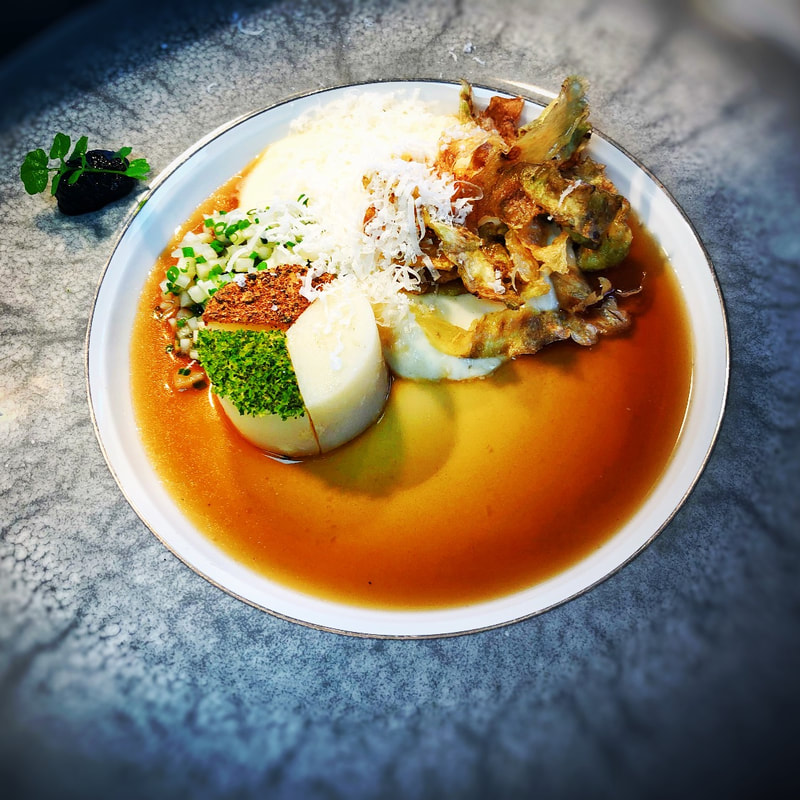 Today’s class was very different to any other class as students prepared ...... This was closer to a real life scenario.... students got to produce...... recipes were accessible prior the session on Moodle.... The students really enjoyed Braking away from the normal structure of the class... the class provided the opportunity for some of the students to work as a large collective team, while others were responsible for individual tasks |

